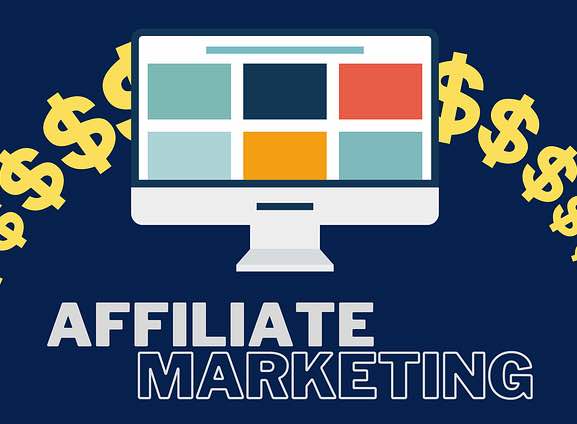Consumers’ shopping habits have transformed over the years, with more shoppers going online to buy. And even with an uncertain economy, opportunities to grow your ecommerce business continue to abound. Figures from eMarketer show online sales will exceed $700 billion in 2020, and the COVID-19 pandemic is also fueling the exponential growth in ecommerce.
And as things look now, there’s no likelihood of ecommerce sales declining soon. Further, once shoppers develop new habits they’re more likely to stick to them, rather than go back to traditional bricks and mortar shopping.
What is the essential tech needed to grow your ecommerce business?
If you currently don’t have an online presence, this could be the right time to get yourself established. And if you’ve already set up an ecommerce site, you might want to optimize the service you offer your buyers.
Depending on where your business is now, that may mean investing in some essential tech for your ecommerce business.
Regardless of the size of your enterprise, getting some tech for your ecommerce company is vital to your ongoing success. The right tools allow you to:
- simplify your processes
- track sales and spot trends
- offer the additional personalization that many customers crave
- manage your marketing
Your technology needs will vary, but there are some basics many ecommerce owners could benefit from, like:
- newsletter and email management
- analytics and inventory tools
- personalization tools
- social media management
- customer service software
Let’s start with personalization.
Personalization of your ecommerce strategy
 While some online stores attempt to compete on price, this doesn’t always make financial sense. But if you really want to stand out, one way to do this is through personalization.
While some online stores attempt to compete on price, this doesn’t always make financial sense. But if you really want to stand out, one way to do this is through personalization.
Survey after survey highlights the importance of personalization in ecommerce. One study shows it can increase conversion rates by nearly 8 percent, and most shoppers (75 percent) say they appreciate the personal approach.
If that’s not enough to convince you, let’s look at the other benefits of personalization. It can also:
- encourage loyalty and increase sales
- enhance customer communications, making them feel valued
- improve consumer recommendations and conversions
- reduce your bounce rate
Think of any of the larger ecommerce stores you buy from. Chances are they use personalization, which means you get sent content about products that:
- you’re interested in
- you’re most likely to respond to
- are newly released and relevant to your previous purchases
But this personal touch needn’t just apply to larger brands. There are several simple tools that allow you to tailor your offerings, including:
- Google Optimize 360, which enables you to create A/B testing.
- Optimizely
- Adobe Target
Related: 5 marketing lessons from businesses thriving during the COVID-19 pandemic
Newsletter management
If you don’t use a newsletter to reach out to your customers, perhaps it’s time you should. While there are plenty of other marketing methods available, research demonstrates that most consumers want promotional emails from the brands they buy from.
Not only that, but there’s enough research out there to show email newsletters can be more effective than social media.
So, what makes newsletter marketing so effective? Newsletters offer an affordable way of
- creating and nurturing new leads
- establishing your company as an authority
- highlighting new products
And you can tailor them to individual customers to bolster your conversions.
If you think the prospect of setting up a newsletter sounds daunting, don’t worry, it needn’t be difficult. With GoDaddy, you can create newsletters in minutes.
Analytics and inventory trackers
If you want to better understand consumer behavior, then you’ll need to do some digging into your data. This is one approach many companies are turning to enhance both their online and offline success.
As well as providing an increasingly personalized approach to marketing, these businesses are using data to:
- respond to changing needs
- measure their marketing efforts
- manage inventory and predict future trends
- increase conversions
- determine product strategy
- analyze marketing efforts
- minimize fraud risks
- improve customer service
Once you have access to detailed data, you can make better-informed decisions about your direction, reduce costs, and maximize your earnings.
Related: Advanced ecommerce features to consider for your online store
Social media tools

Social media enables you to engage with customers and manage queries. But there are plenty of other ways it can help you grow your ecommerce site, such as:
- sending out promotional offers, like pre-orders or sales
- allowing customers to share their recent buys with their followers
- developing targeted, efficient campaigns to reach a wider audience
- Hosting contests and encouraging user-generated content
However, not every ecommerce owner has the resources to take on a full-time social media manager. This is where some essential tech tools can prove invaluable.
To maximize your social media management, there are numerous tools available. For example, GoDaddy’s Websites + Marketing services provide a whole host of built-in marketing resources to help you promote your ecommerce site.
Related: 4 ways to wow with social media customer service
Customer service management tools
There’s no getting away from it: good consumer relations are essential to your growth. Most consumers interviewed by Zendesk say poor customer service influences their buying behaviors. The survey also revealed most shoppers (67 percent) expect customer service to be efficient.
As a small to medium-sized business, you can’t always be there for your customers. But you can use ecommerce tech to automate many of your usual processes and optimize service levels.
For instance, you can use your analytics tools to improve your response times. Or you could use a specific customer relationship management (CRM) software. There’s plenty to choose from, including HubSpot’s free CRM for sales leaders and Zoho’s CRM, which has several paid membership levels
Conclusion: Time to grow your ecommerce business
The shift to ecommerce shows no signs of slowing down, and global events have pushed even more consumers toward online shopping.
Many experts state that once consumers have changed their shopping habits, they’re not likely to go back to their old ways of buying.
Therefore, if you haven’t yet made the move to ecommerce, or if your store is lacking the tools you need to make it a success, now might be a good time to optimize your online offerings.
You can do this by introducing some essential tech for your ecommerce business. This will let you better manage customer service, identify new trends, maximize your marketing efforts, and reach a wider group of consumers through social media.
The post Essential tech to grow your ecommerce business appeared first on GoDaddy Blog.




